IRGC Commander Says Iranians Working For NASA, Starlink ‘Serve Enemy’
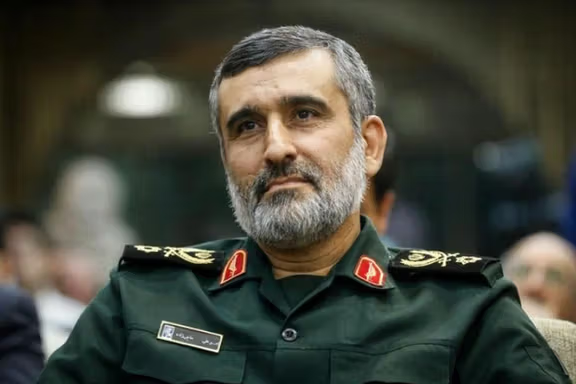
The IRGC Aerospace Commander has said that some Iranians "use the country's resources" and then go to NASA or participate in the "mischievous" Starlink project.

The IRGC Aerospace Commander has said that some Iranians "use the country's resources" and then go to NASA or participate in the "mischievous" Starlink project.
Amir Ali Hajizadeh accused the Iranian employees of the Starlink of "not having a goal" and unable recognize “friends and foes" adding that these people "serve the enemy".
NASA or the National Aeronautics and Space Administration is an independent agency of the US federal government responsible for the civil space program, aeronautics research, and space research. Currently it is pursuing various projects, the most important of which is "Artemis" that seeks to return humans to the moon.
Starlink is a satellite system operated by SpaceX to provide satellite internet services and is managed by Elon Musk, an American entrepreneur and billionaire.
In his statements, the IRGC Aerospace Commander did not provide information about the number of Iranians working for NASA or Starlink, but it seems that his criticism is in response to the possible lack of specialist personnel in the IRGC and the large-scale migration of elites from Iran.
In recent years, the Islamic Republic of Iran has launched extensive security and judicial actions against the country's elites and academics who prefer to emigrate amid dire economic situation.
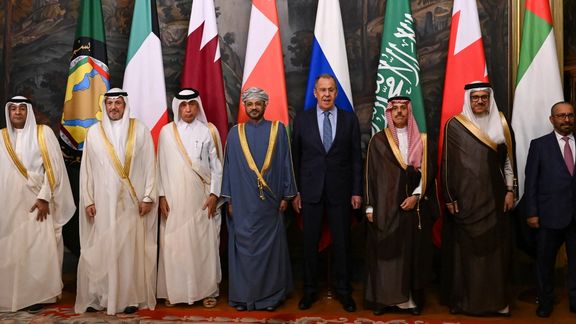
Tehran has upheld its sovereignty over three Persian Gulf islands after Russia and the Persian Gulf Cooperation Council (GCC) once again disputed Iran's rights.
In a joint Russia-GCC statement at the sixth joint ministerial meeting of the strategic dialogue between the Persian Gulf Cooperation Council (GCC) and the Russian Federation, held in Moscow on Monday, ministers affirmed their support for the United Arab Emirates which also claims sovereignty over the islands.
A statement called for "bilateral negotiations or the International Court of Justice, in accordance with the rules of international law and the United Nations Charter, to resolve this issue is in accordance with international legitimacy".
However, Iran's foreign ministry spokesperson Nasser Kanaani, on Tuesday rejected the contents of the statement about the three islands and said they “eternally belong to Iran and such statements are inconsistent with Iran’s friendly relations with its neighbors,” referring to the detente between the Iran with its neighbors the UAE and Saudi Arabia.
The first meeting of the Russia-GCC strategic dialogue was held in the Saudi capital in 2017 but Moscow’s inclination towards the Arab countries has been on the rise in recent years, especially after the Russian invasion of Ukraine. However, the allegiance on the contentious matter of the islands with the UAE, will be a blow to Tehran which since the war in Ukraine has forged a growing alliance with Moscow.
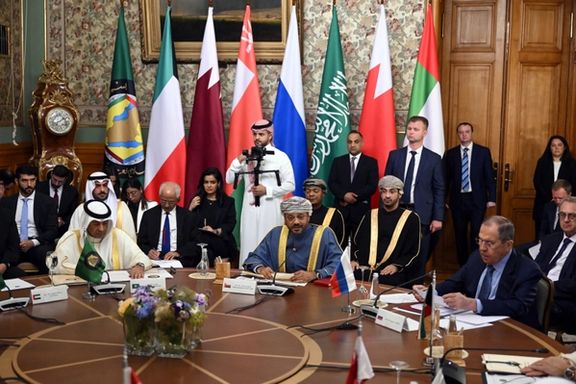
The three Persian Gulf islands have historically been part of Iran, proof of which can be corroborated by historical and geographical documents. However, the United Arab Emirates has repeatedly laid claim to the islands, describing the situation as “the continued occupation by the Islamic Republic of Iran.”
The three islands fell under British control in 1921 but on November 30, 1971, a day after British forces left the region and just two days before the UAE was to become an official federation, Mohammad Reza Shah sent the Iranian navy to secure all three. Iranian forces remain on the islands, with only Abu Musa having a civilian population which is less than two thousand.
The GCC - a regional organization bringing together six countries of Bahrain, Qatar, Kuwait, the United Arab Emirates, Oman and Saudi Arabia - repeatedly expresses support for “the right of the State of the UAE to regain sovereignty over her three islands and over the territorial waters, the airspace, the continental shelf, and the economic zone of the three islands, as they are an integral part of the State of the United Arab Emirates.”
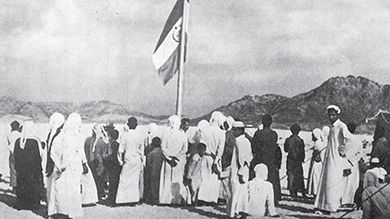
Urging the Islamic Republic of Iran to respond to the efforts of the UAE and the international community in solving the issue by peaceful means or taking recourse to the International Court of Justice, the GCC demands “that Iran abide by the basic pillars of promoting good neighborly ties, mutual respect, and non-interference in the internal affairs.”
In the statement issued at the end of the summit in Moscow, the Russian and GCC ministers also welcomed the agreement between Saudi Arabia and the Islamic Republic on the efforts and mediation of Oman, Iraq and China. They also expressed hope that this agreement would constitute a positive step to resolve differences and end all regional disputes through dialogue and diplomatic means.
Russian Foreign Minister Sergey Lavrov, who hosted his Arab counterparts from the Persian Gulf, also welcomed the recent rapprochement, saying that “this creates a more positive atmosphere in this region."
The GCC countries have kept warm relations with Russia after its invasion of Ukraine, despite their claims that they support the international community’s view about the war.
“Our position on the Russian-Ukrainian crisis is based on the principles of international law and the UN Charter,” Al Budaiwi said during an address to the meeting on Monday.
In March, Saudi Foreign Minister Prince Faisal bin Farhan said on a visit to Moscow that Riyadh was ready to mediate in the Russia-Ukraine conflict. Saudi Arabia has also strengthened its relationship with Kyiv, sending significant amounts of humanitarian aid, as well as mediating between Russia, the US and Ukraine on prisoner exchanges.
According to an analysis by the Carnegie Endowment for International Peace think tank, many Arabic media platforms adopt a narrative that justifies the Russian invasion with reference to Russia’s right to defend its national security. It portrays the narrative that Ukraine is a Western puppet that initiated hostilities and threatened Russia.
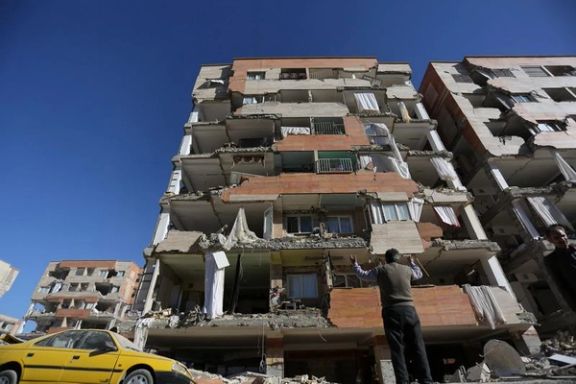
A magnitude 3.3 earthquake struck southeastern Tehran on Tuesday near Ghiamdasht county raising fears that the Iranian capital might be prone to stronger quakes.
Mehdi Zare, a faculty member of the International Research Institute of Seismology and Earthquake Engineering, told Roydad 24 that Tuesday’s earthquake near Eyvanki fault indicates that it is still active, causing minor quakes.
“This fault zone, whose northwestern end reaches the 15th district of Tehran, has an earthquake-generating capacity of up to magnitude 7.5,” he warned. At least one and a half million people would die in case of an earthquake with a magnitude of 7 in Tehran, say experts.
The Tuesday morning quake was about 20 km southwest of Tehran and at a depth of 10 km (6.21 miles), the Volcano Discovery said.
Iran is crisscrossed by major geological fault lines and is one of the most earthquake-prone countries in the world because it is located where the Arabian, Indian, and Eurasian tectonic plates meet.
Iran has a history of massive earthquakes in recent decades, with some killing up to tens of thousands of people and causing billions of dollars in damages, such as the magnitude 6.6 quake in Kerman province in 2003 that killed 31,000 and flattened the ancient city of Bam.
Iranian officials have warned that there are 166,000 hectares of worn-out structures across the country which means a major earthquake like in Turkey and Syria could result in “hundreds of thousands of deaths.”
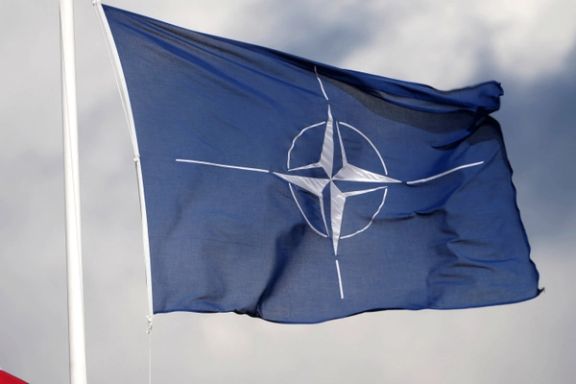
NATO allies expressed serious concern over Iran's "malicious activities" within their territory and called on Tehran to stop its military support to Russia, including the supply of drones.
"We call upon Iran to cease its military support to Russia, in particular its transfer of Uncrewed Aerial Vehicles (UAVs) which have been used to attack critical infrastructure, causing widespread civilian casualties," the 31-member alliance said in a final declaration at a summit in Lithuania.
"We express our serious concern over Iran’s malicious activities within Allied territory."
The United States and Britain have accused Iran of numerous terror plots on their soil. Last November, Iran International TV moved its broadcast operation to Washington DC after the British police found credible information that Iranian agents were plotting to harm its journalists.
Iran has also supplied hundreds of kamikaze drones to Russia since mid-2022 that have been used against civilian and military targets since early October last year. NATO countries had to beef up Ukraine’s air defenses partly because of the Iranian Shahed drones that are cheap and used in swarms by Russia to overwhelm air defenses.
The latest such attack occurred in the early hours of Tuesday, July 11, when Russia launched 29 attack drones mostly against the capital Kyiv. Ukraine’s military said it shot down all the drones, but this results in precious anti air missiles to be used, which are needed against missiles and for military operations.
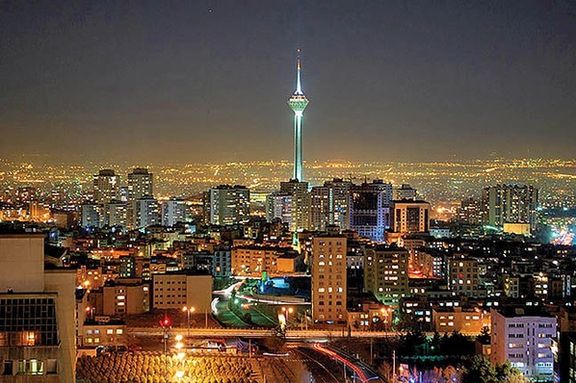
Iran’s electricity usage has broken a record to hit 72,500 megawatts – increasing strain on power grids that were already struggling to meet demand.
The constant rise in temperatures and decrease in rainfall across Iran in the last decade have made electricity supply a challenge during peak consumption periods.
According to the IRNA state news agency, the new heatwave began on Saturday, forcing people to use cooling systems which increased the consumption.
On Saturday, Ali Akbar Mehrabian, the Minister of Energy, said: "According to the predictions, we may see a historical record of electricity consumption in the country this week."
Power plant capacity and fuel supply are both inadequate to meet demand, and blackouts regularly happen in summer. Even so, Iran exports electricity to Iraq.
Iran's electricity sector is in dire need of significant investment, and the country has been struggling to attract foreign investment in recent years.
Iran has failed to realize its annual electricity growth plan for several years in a row, while consumption continues to grow, in part driven by extremely low prices. Government funding to the energy sector of up to $60 billion a year effectively provides an indirect subsidy to consumers and businesses fueling this demand.
The country needs at least 5 to 7 percent electricity generation growth annually to address the increase in domestic demand. It has been an ongoing problem for the country which has one of the biggest natural oil and gas reserves in the world. In 2021, mass protests erupted after nationwide blackouts. With current tensions and an ongoing economic crisis, another mass breakdown could revive the unrest which has swept the country since September.
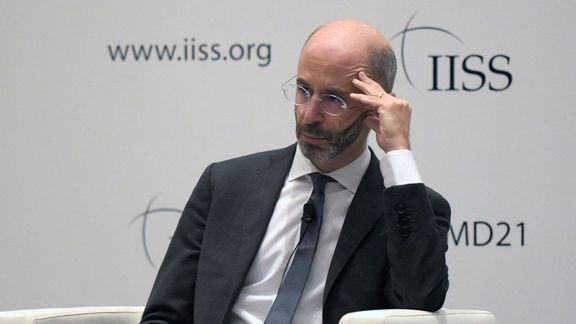
Suspicions of leaked classified information are reaching crisis point as an Iranian media outlet reveals more details about the investigation of US Iran envoy.
CBS News has also confirmed that the Federal Bureau of Investigation (FBI) is investigating Robert Malley, but the issue is not deemed a criminal matter.
However, a detailed report in Tehran Times about Malley's suspension and investigation has raised questions among former American officials and Iran watchers.
As presidential envoy for Iran, Malley was based at the State Department, his portfolio including both the attempts to resurrect a nuclear agreement with Iran (under the JCPOA), as well as negotiations over at least three American citizens who remain wrongfully detained by Tehran.
His suspension was first reported by Iran International June 29 and formally announced the following day by Matthew Miller, the spokesperson for the US State Department, calling it "a leave of absence”, adding that his duties would be temporarily assumed by his deputy, Abram Paley. However, it is believed he had been suspended as early as April.
According to the Tehran Times, a pro-regime publication, the exact date of Malley's suspension was April 21, when Malley was informed by the Diplomatic Security Department that due to his not having maintained classified documents, his security clearance was suspended.
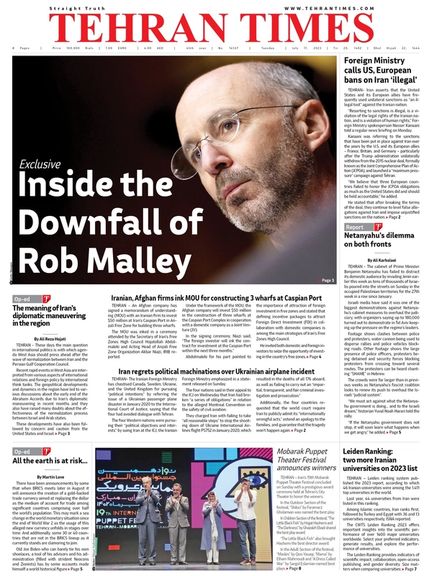
The regime publication wrote: “His work-related accesses were cut off at this time. However, to prevent the matter from becoming public, some of his limited and non-critical accesses were maintained, such as his communication with the families of American prisoners in Iran.”
How a pro-regime outlet had such details, of which even Congress had not be informed, is raising serious questions. Frustrated by the lack of information sharing with the congressional committees overseeing the State Department, House Foreign Affairs Committee Chair Mike McCaul, Republican of Texas, sent a letter setting a July 11 deadline for the department to provide an update.
His letter claimed Congress had been misled about the reason for Malley's absence, which had been attributed to a family health matter. State Department spokesman Miller said in response: “We obviously got the letter from the Chairman; we've been reviewing it and we will be engaging with his office on the matter.”
The Tehran Times went into further detail, claiming that during the first few weeks of Malley’s unpaid leave, when Iran and the US held confidential negotiations in Oman, the US sent Brett McGurk, a member of the National Security Council who is close to Jake Sullivan. “The noteworthy point is that the Americans are trying to present the replacement of McGurk as a positive change and an effort to advance negotiations with Iran, hiding the Malley affair,” they wrote.
Ex-Iran envoy Gabriel Noronha pointed to the article as a worrying sign that sources in Tehran know more about the scandalous affair than Congress itself. Like many other Iran watchers, he highlights the closeness Malley has with key members of the regime. “His family's ties to notorious Iranian propagandists like Trita Parsi should be disqualifying in themselves,” he wrote.
Malley’s suspension has been of grave concern to the Biden administration, risking a controversy at a time which is critical to nuclear negotiations as Iran's uranium enrichment proceeds unhindered.
Alireza Nader from the National Union for Democracy in Iran said the matter risks becoming “a huge national scandal”, the Iran lobby possibly jeopardizing talks moving forward.
The Tehran Times article suggests the future of Malley’s career is bleak, revealing the depth of his connections to the regime: “Malley’s overly close proximity to his non-official Iranian assistants and advisers created the ground for the fall of this experienced diplomat.”